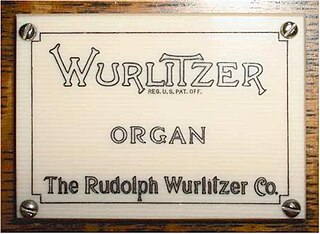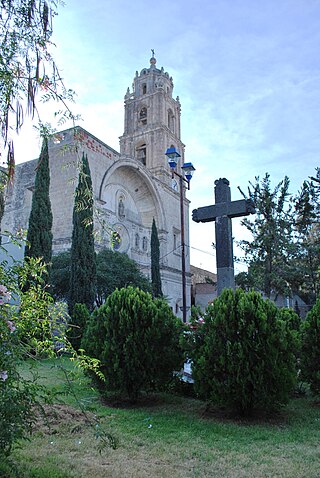This article needs additional citations for verification .(February 2024) |
Anfora is the largest Mexican manufacturer of vitrified ceramics. It is based in the silver mining city of Pachuca, in the state of Hidalgo, in Mexico.
This article needs additional citations for verification .(February 2024) |
Anfora is the largest Mexican manufacturer of vitrified ceramics. It is based in the silver mining city of Pachuca, in the state of Hidalgo, in Mexico.
Anfora was founded in 1920 by Pablo Schmidt, Alberto Lenz, Julio Vermehren, Carlos Reichert, Enrique Hilger, Federico Ritter and Adolfo Goerz in Mexico City as a porcelain manufacturer for home and institutional ceramic dinnerware. It was originally called Fábrica de Loza El Ánfora. [1] After the Mexican Revolution, Anfora grew its production through German technology and Mexican labor, eventually coming to dominate the Mexican market for this type of products. In 1932, Anfora started to manufacture sanitaryware for the construction market. During World War II, the Mexican government under Lázaro Cárdenas intervened the company as the original owners were of German nationality. After a tumultuous period of poor decisions and lack of investment by government officials, the company was sold in 1947 to local investors. The period of explosive post-war growth, plus its installed infrastructure, allowed Anfora to grow exponentially and become a household name. In 1994, the factory moved to a 1,200,000 square feet (110,000 m2) facility in Pachuca, where it continues to operate with over 1,000 people in 2020.
The company sells in Mexico through a network of distributors and wholesalers. In the US, it is represented exclusively by Steelite for the foodservice market, where it competes against local factories like Homer Laughlin and Hall China. Home use dinnerware is sold through retailers like Pottery Barn and Williams Sonoma. One of the most traditional Anfora pattern is the hand painted Blue and White Puebla, sold as a collector's dinnerware through individuals on eBay. Other customers include Starbucks and Mexican restaurants like Sanborns, Las Mañanitas and San Angel Inn.
In Japan, Anfora is represented by The Harvest Kitchen Store as well as by Royal Bussan. European markets are served through Steelite UK, while Latin America has its share of local importers.

Simca was a French automaker, founded in November 1934 by Fiat S.p.A. and directed from July 1935 to May 1963 by Italian Henri Pigozzi. Simca was affiliated with Fiat and, after Simca bought Ford's French subsidiary, became increasingly controlled by Chrysler. In 1970, Simca became a brand of Chrysler's European business, ending its period as an independent company. Simca disappeared in 1978, when Chrysler divested its European operations to another French automaker, PSA Peugeot Citroën. PSA replaced the Simca brand with Talbot after a short period when some models were badged as Simca-Talbots.

Hidalgo, officially the Free and Sovereign State of Hidalgo, is one of the 31 states which, along with Mexico City, constitute the 32 federal entities of Mexico. It is divided into 84 municipalities and its capital city is Pachuca de Soto. It is located in east-central Mexico and is bordered by San Luis Potosí and Veracruz on the north, Puebla on the east, Tlaxcala and State of Mexico on the south and Querétaro on the west.
Oneida Limited is an American manufacturer and seller of tableware and cutlery. Oneida is one of the world's largest designers and sellers of stainless steel and silverplated cutlery and tableware for the consumer and foodservice industries. It is also the largest supplier of dinnerware to the foodservice industry in North America. The company operates in the United States, Canada, Latin America, Europe, and Asia, marketing and distributing tabletop products, which include flatware, dinnerware, crystal stemware, glassware and kitchen tools and gadgets. The factory in upstate NY was sold to Liberty Tabletop, who is the sole manufacturer of US made flatware. The company originated in the late-nineteenth century in the Oneida Community in Oneida, New York.

Mexicali is the capital city of the Mexican state of Baja California. The city, seat of the Mexicali Municipality, has a population of 689,775, according to the 2010 census, while the Calexico–Mexicali metropolitan area is home to 1,000,000 inhabitants on both sides of the Mexico–United States border. Mexicali is a regional economic and cultural hub for the border region of The Californias.

Pachuca, formally known as Pachuca de Soto, is the capital and largest city of the Mexican state of Hidalgo. It is located in the south-central part of the state. Pachuca de Soto is also the name of the municipality of which the city serves as municipal seat. Pachuca is located about 90 kilometres (56 mi) from Mexico City via Mexican Federal Highway 85. There is no consensus about the origin of the name Pachuca. It has been traced to the word pachoa, Pachoacan, and patlachuican.

Fiesta is a line of ceramic glazed dinnerware manufactured and marketed by the Fiesta Tableware Company of Newell, West Virginia since its introduction in 1936, with a hiatus from 1973 to 1985. Fiesta is noted for its Art Deco styling and its range of often bold, solid colors.

Pascual Boing is a Mexican soft drink maker mostly known for its fruit flavored beverages marketed under the Pascual, Boing! and Lulú brands. The enterprise was begun in 1940 and successfully held against the entrance of foreign competitors in the Mexican market. However, continued labor disputes led to a strike in 1982, which ended in 1985 with the workers obtaining the right to take over the company, running it as a cooperative. Since then, it has remained a profitable business although it has lost market share in Mexico, due to competition from Coca-Cola and Pepsi. This has prompted the company to protest unfair practices which exclude it from retail venues as well as look abroad to new markets, especially in the United States. it is also one of the sponsors for many Consejo Mundial de Lucha Libre and Lucha Libre AAA Worldwide's shows

The Rudolph Wurlitzer Company, usually referred to as simply Wurlitzer, is an American company started in Cincinnati in 1853 by German immigrant (Franz) Rudolph Wurlitzer. The company initially imported stringed, woodwind and brass instruments from Germany for resale in the United States. Wurlitzer enjoyed initial success, largely due to defense contracts to provide musical instruments to the U.S. military. In 1880, the company began manufacturing pianos and eventually relocated to North Tonawanda, New York. It quickly expanded to make band organs, orchestrions, player pianos and pipe or theatre organs popular in theatres during the days of silent movies.

The Royal Crown Derby Porcelain Company is the oldest or second oldest remaining English porcelain manufacturer, based in Derby, England. The company, particularly known for its high-quality bone china, having produced tableware and ornamental items since approximately 1750. It was known as 'Derby Porcelain' until 1773, when it became 'Crown Derby', the 'Royal' being added in 1890.

The Hall China Company was an American ceramics manufacturer located in East Liverpool, Ohio, United States. At the time of its closure, Hall China was one of two potteries under the HLC Inc. brand, the other being Homer Laughlin China. In 2020, it was announced that the Hall China facility would be closed by February 2021 to reduce overhead in the now Fiesta Tableware Company, as the Hall China brand itself had been sold to Steelite International earlier in the year. Hall China is still produced as a food service brand by Steelite, but no longer operates as an independent brand in retail.

Mineral del Monte, commonly called Real del Monte or El Real, is a small mining town, and one of the 84 municipalities of Hidalgo, in the State of Hidalgo in east-central Mexico.
The Fiesta Tableware Company is a ceramics manufacturer located in Newell, West Virginia, United States. Established in 1871, it is widely known for its Art Deco glazed dinnerware line, Fiesta. In 2002, The New York Times called Fiesta "the most collected brand of china in the United States".

Zumpango is a municipality located to northeastern part of the state of Mexico in Zumpango Region. It lies directly north of the Mexico City within the Greater Mexico City urban area. The city of Zumpango lies near Lake Zumpango, the last of the five interconnected lakes which covered much of the Valley of Mexico in the pre Hispanic period. The name Zumpango is derived from the Nahuatl word “Tzompanco” which means string of scalps.

Two-wheel tractor or walking tractor are generic terms understood in the US and in parts of Europe to represent a single-axle tractor, which is a tractor with one axle, self-powered and self-propelled, which can pull and power various farm implements such as a trailer, cultivator or harrow, a plough, or various seeders and harvesters. The operator usually walks behind it or rides the implement being towed. Similar terms are mistakenly applied to the household rotary tiller or power tiller; although these may be wheeled and/or self-propelled, they are not tailored for towing implements. A two-wheeled tractor specializes in pulling any of numerous types of implements, whereas rotary tillers specialize in soil tillage with their dedicated digging tools. This article concerns two-wheeled tractors as distinguished from such tillers.

Club Deportivo Albinegros de Orizaba was a football club of the city of Orizaba, in the state of Veracruz. Founded in 1898 as "Orizaba Athletic Club", it was founded by Scottish migrant Duncan Mac Comish Mac Donald who owned a local steel company. In the beginning, the club hosted cricket among other sports.

In 2015 Spain produced 2.7 million cars which made it the 8th largest automobile producer country in the world and the 2nd largest car manufacturer in Europe after Germany. The forecast as of 2016 was to produce a total of 2.8 million vehicles from which about 80% is for export. During the first half of 2016, with exports valued over 24 billion euros over that period, the automotive industry accounted for 18.9% of the total Spanish exports.
This article provides an overview of the automotive industry in countries around the world.

Ceramics in Mexico date back thousands of years before the Pre-Columbian period, when ceramic arts and pottery crafts developed with the first advanced civilizations and cultures of Mesoamerica. With one exception, pre-Hispanic wares were not glazed, but rather burnished and painted with colored fine clay slips. The potter's wheel was unknown as well; pieces were shaped by molding, coiling and other methods,
Ciudad Sahagún, officially called Fray Bernardino de Sahagún, is a town in the municipality of Tepeapulco, within the State of Hidalgo, in Mexico.

The automotive industry in Egypt has been developing for 50 years. It can sell more than 200,000 vehicles annually and is now the second-largest market in Africa and the 42nd largest in the world, with an annual production output of over 70,000 vehicles. After experiencing many failures and success, the Egyptian Automotive industry is focusing more on assembly operations rather than manufacturing.